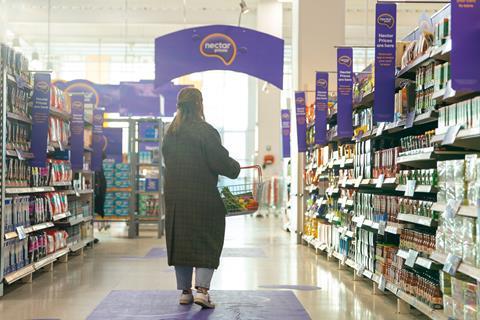
Top story
Sainsbury’s has reported lower annual profits despite an inflation-driven 5.3% rise in sales as margins were cut as it invested in price. Overall profit more than halved due to restructuring costs and impairments.
Group sales (including VAT, including fuel) increased by 5.3% year on year for the year ending 4 March, with retail sales up by 2%.
Retail like-for-like sales, excluding fuel, increased by 2.6% compared with a 2.3% decrease last year.
Grocery sales were up 3%, driven by inflation and improved market share performance, with Q4 grocery sales up 7.4% as inflation increased.
Sainsbury’s said its grocery sales were “relatively resilient” in terms of sales volumes within a context of volume decline across the market as it prioritised value for customers, inflating behind key competitors.
General merchandise sales were down 0.4%, despite Argos gaining share in a weak general merchandise market. Again sales increased towards the end of the year, with fourth quarter GM sales up 7.6% and Argos up 9.3%.
Fuel sales increased by 23.4%, driven entirely by higher market prices reflecting oil price inflation and a weakened sterling exchange rate, while Sainsbury’s increased its share of the fuel market.
However, despite the sales uplift, underlying profit before tax fell 5% to £690m, albeit this was at the top end of guidance of £630m to £690m and up 18% on pre-pandemic levels.
The profit decline reflected the annualisation of Covid-19 driven grocery volume, investment in the customer proposition and operating cost inflation, partially offset by operating cost savings and lower finance charges.
Retail underlying operating profit decreased by 7.5% to £926m as retail underlying operating margin decreased by 41 basis points year on year to 2.99% from 3.4% as reduced volumes and cost inflation were only partially offset by higher fuel sales and its cost controls.
Statutory profit before tax fell to £327m from £854m as the group was impacted by non-cash asset impairments of £363m, driven by a higher discount rate due to interest rate hikes, £106m of restructuring charges, and one-off income from legal settlements in the prior year.
Sainsbury’s said it had started its new financial year with “great momentum”.
At this early stage it expects underlying profit before tax to be broadly in line with last year, between £640m and £700m.
CEO Simon Roberts commented: “We really get how tough life is for so many households right now which is why we are absolutely determined to battle inflation for our customers. Our focus on value has never been greater and we have spent over £560m keeping our prices low over the last two years. As a result, we are now the best value compared to our competitors that we have been in many years and we are delivering improved market share performance in Sainsbury’s and Argos.
“We are two years into our plan to put food back at the heart of Sainsbury’s and have focused our efforts on reducing costs right across the business, which has enabled us to make the right decisions for our colleagues and customers. At the same time, we have improved the performance and profitability of Argos, Tu, Nectar and Financial Services so that we can invest further in the areas that customers and colleagues care about most.
“Over the last 12 months, we took the decision to invest £225m in supporting colleagues including raising colleague pay three times [and] made the choice to give £66m of additional support to British farmers over the last year.
“We made these very deliberate decisions and investments because they make our business stronger, but more importantly because they are simply the right thing to do. While there is still much to be done and there is no doubt that the year ahead will remain challenging, I’m confident we will continue to deliver for our customers, colleagues, communities and shareholders.”
Sainsbury’s shares are down 0.6% to 282.3p on the news.
Morning update
Unilever has posted underlying sales growth of 10.5% in the first quarter, despite an easing of price hikes and sales volumes returned to almost flat.
The group’s underlying sales growth of 10.5% represented sales of €14.8bn was an acceleration of 9.2% seen in the fourth quarter.
Volumes had been down 3.6% in the fourth quarter and 2.1% in 2022 as a whole.
Beauty & wellbeing grew underlying sales by 9.3% driven by price, while volume growth of 2.6% was helped by another quarter of double-digit growth in prestige beauty and health & wellbeing, which now account for 5% of group turnover.
Personal care underlying sales were up 12.7%, driven by price and 3% volume growth of which the majority came from strong pipeline refill in deodorants.
Home care delivered 10.2% underlying sales growth, with a volume decline of 2.8% which was largely caused by lower volumes in home and hygiene and air wellness.
Nutrition grew 11.9% with slightly negative volume down 1.3% driven by scratch cooking aids, while ice cream improved underlying sales by 6.0% despite negative volume growth of 4.1% and consumption fell in home.
Emerging markets grew underlying sales by 11.7% with price of 11.8% and volume down 0.1%, while volumes held up better in North America than in Europe.
The strong first quarter sales performance means Unilever now expects underlying sales growth for the full year to be at the upper end of its 3%-5% guidance, with price growth remaining high in the first half and softening through the year.
Underlying operating margin in the first half will be at least 16% as it continues to expect a modest improvement in underlying operating margin in the full year, with another year of increased investment.
CEO Alan Jope commented: “Unilever has had a good start to the year, delivering another quarter of strong topline growth. Underlying sales growth accelerated to 10.5%, driven by price growth in response to continued high input cost inflation and an improved volume performance.
“We are continuing to execute well on our strategic priorities. Growth was broad-based across the five Business Groups, underpinned by strong performances from our billion-plus Euro brands. We have stepped up both the effectiveness of our innovation and the investment behind our brands [and] our new operating model is driving focused resource allocation, and is unlocking a culture of bolder, faster decision-making and disciplined execution.
“We remain focused on navigating through continued macroeconomic uncertainty and are confident in our ability to deliver another year of strong growth, which remains our first priority.”
Elsewhere on a busy morning, Hotel Chocolat has announced it expects its annual sales to be slightly lower than market expectations with underlying profits breaking even as it transitions its business.
It said this morning it had made “excellent progress” on cost base efficiencies in readiness for 2024, while second half trading to 23 April achieved high seasonal full price sell through of 86%, gross margin up by 500 basis points.
Meanwhile, UK retail like-for-like momentum has continued to strengthen during second half.
However, all channel Easter period sales were lower than expected due to some range gaps which could not be addressed this year due to transition year efficiency focus. Additionally, digital and wholesale channels had lower revenues than initially planned due to focus on quality of earnings.
The board reconfirms its mid-range guidance of expecting to see a return to sales and EBITDA growth with a re-iterated target of 20% EBITDA margin by 2025.
Co-founder and CEO Angus Thirlwell commented: “During this financial year, Hotel Chocolat has taken effective action to overcome the growing pains of rapid growth and scaling £200m in revenues. We are now well set up for the next stage of growth both in the UK and overseas key markets. Getting through these barriers to growth are a real test of culture, and I am unceasingly impressed by the strength of the Hotel Chocolat culture, as we remodelled our way through FY23.
“Our manufacturing and distribution is well invested now, with suitable headroom, liberating capital for future revenue growth. We can see more than 50 new locations for a Hotel Chocolat latest format store in the UK over the next few years and our adapted approach to international major markets is making sound progress.
“We are very grateful to our growing base of loyal and new customers, who are signalling that ethical and higher cacao premium chocolate is definitely worth it.”
Brewing giant Carlsberg has posted strong double-digit revenue growth on pricing and volume gains, particularly in Asia.
Organic revenue growth was 14.2% in the quarter, driven by price per hectalitre increases of 12%, with strong growth in all regions.
The pricing improvement was largely driven by a positive channel mix following the on-trade recovery after Covid-19, price increases and a positive country mix.
Organic volume growth was also 2.1%, with volumes down 1% in Western Europe, up 0.9% in Central and Eastern Europe and up 4.9% to Asia.
Of its key brands, volumes were up 1% for Tuborg, Carlsberg was up 4%, 1664 Blanc 10%, Brooklyn 51%, Grimbergen 6% and Somersby was down 8%.
Carlsberg said some of the uncertainties underlying its previous guidance have lessened as it was able to implement price increases in Q1 and Covid uncertainty in China has eased.
Consequently, it has narrowed the earnings guidance range for 2023, with organic growth in operating profit of -2% to +5% (previously -5% to +5%).
CEO Cees ’t Hart said: “The first quarter of the year showed a strong improvement in revenue per hectolitre, covering the significant increase in our cost base.
“Although uncertainties for the year remain, particularly in Europe, we’re pleased that we’ve been able to narrow the earnings guidance range and that we’re initiating a new DKK 1bn share buyback today in light of our strong balance sheet. We remain committed to our SAIL’27 strategy and will continue to invest in our long-term ambitions, while responding to short-term challenges.”
A trading update from packaging giant DS Smith has said it saw strong growth in profitability and financial performance for the year ending 30 April.
Excellent customer relationships, and our high levels of service, product innovation and sustainability focus have driven resilient packaging prices during the period.
Meanwhile, combined with good cost management, this has more than offset the weaker than expected volumes to deliver growth in profitability and delivery in line with medium-term financial targets.
Expected adjusted EBITA for 2023 is in the range of £850m-£860m.
CEO Miles Roberts said: “I am pleased with the excellent performance we have delivered this year, despite the volatile macroeconomic conditions. Our relentless focus on more resilient international fmcg customers to meet their rapidly evolving needs has enabled us to increase our share of their business and, together with ongoing cost management, has driven very strong profit growth.
“We remain committed to investing in our business, leveraging our scale, flexible supply chain, supporting our deep customer relationships with innovative fibre-based solutions to lead the transition to a more circular economy, positioning us well as we enter the next financial year.”
Naked Wines has issued a pre-close update for the year to 4 April, with total revenues expected to be in line with guidance at £350m – which is flat on a reported basis and down 6%-8% on a comparable basis.
Full year adjusted EBIT is expected to be £15m-£18m, at the top end or slightly above the guided range.
Reported profit before tax expected to be £2m-£5m, which is consistent with current consensus, as adjusted items of £14m, restructuring cash costs lower and non-cash stock costs were higher than prior guidance.
New customer investment is expected at approximately £21m with five-year payback expected to be 1.6-1.8x, balancing returns with cash generation and scale considerations.
CEO Nick Devlin commented: “[Last year] has been a challenging year but we have made significant strategic progress with a foundation for sustainable profitable growth. Our pivot to profit is on track, delivering profitability at the top end of our guidance. Our cost control actions have resulted in SG&A at the low end of our expectation, while destocking continues as planned.
“We enter [the new financial year] as a significantly larger and substantially more profitable business than we were pre-pandemic. As stated in January, we expect a modest revenue decline near-term, but the demand outlook is stabilising, and we have identified opportunities for material cost savings in our fulfilment operations in the medium-term. We continue to expect to generate cash in the second half of [this year] as stock levels reduce. Planned developments in our customer proposition will increase the rate of new customer recruitment.”
On the markets this morning, the FTSE 100 is down another 0.1% to 7,841.6pts.
Risers include McBride, up 2.3% to 32p, Unilever, up 1.4% to 4,432.5p and Naked Wines, up 1.1% to 115p.
Fallers include Hotel Chocolat, down 8.6% to 160p, Fever-Tree, down 3.3% to 1,380p and Bakkavor, down 3.2% to 92.7p.
Yesterday in the City
The FTSE 100 fell back 0.5% to 7,852.6pts yesterday.
Reckitt Benckiser was a major FTSE 100 faller, dropping 3.5% to 6,276p as it revealed new CEO to take over from interim boss Nicandro Durante, while also revealing a strong start to the year as it beat market expectations.
Other fallers included Science in Sport, down 6.5% to 10p, McBride, down 3.1% to 21.3p, Virgin Wines, down 2.5% to 39p, Associated British Foods, down 1.8% to 1,948p, Kerry Group, down 1.7% to €97.30 and C&C Group, down 1.6% to 156p.
Vimto owner Nichols has was up 4.6% to 1,140p after reporting a 4.2% increase in revenues to £41.2m in the first quarter in a trading update ahead of its AGM.
Other risers included Fever-Tree, up 9.2% to 1,427p, Naked Wines, up 4.8% to 113.8p, Greencore, up 2.1% to 83.6p, Ocado, up 1.9% to 517p, Pets at Home, up 1.5% to 384.6p and Marks & Spencer, up 1.3% to 166.7p.







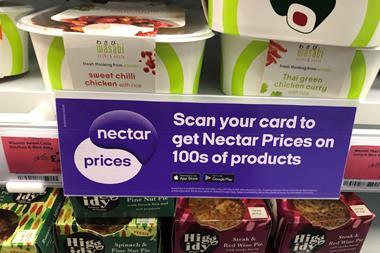
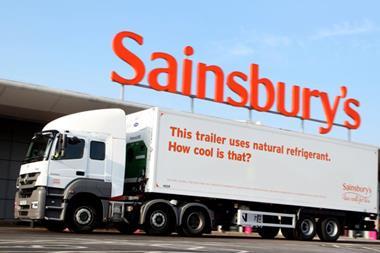
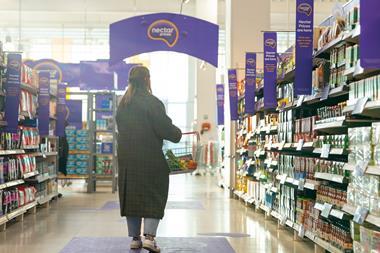
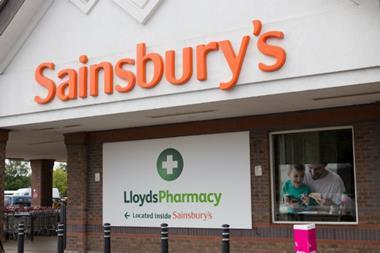
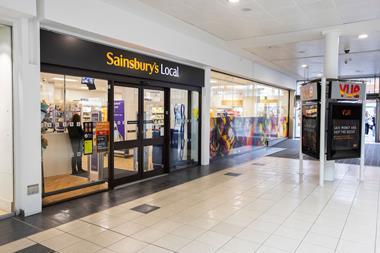
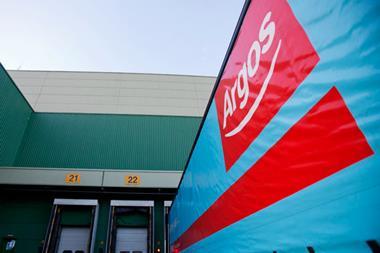
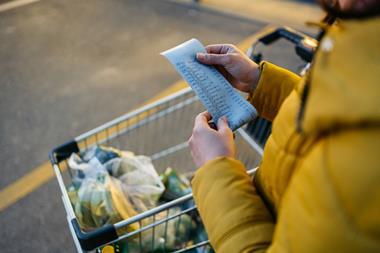





No comments yet